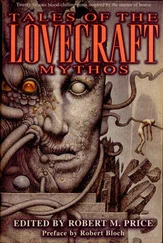Robert Pirsig - Lila. An Inquiry Into Morals
Здесь есть возможность читать онлайн «Robert Pirsig - Lila. An Inquiry Into Morals» весь текст электронной книги совершенно бесплатно (целиком полную версию без сокращений). В некоторых случаях можно слушать аудио, скачать через торрент в формате fb2 и присутствует краткое содержание. Жанр: Современная проза, на английском языке. Описание произведения, (предисловие) а так же отзывы посетителей доступны на портале библиотеки ЛибКат.
- Название:Lila. An Inquiry Into Morals
- Автор:
- Жанр:
- Год:неизвестен
- ISBN:нет данных
- Рейтинг книги:3 / 5. Голосов: 1
-
Избранное:Добавить в избранное
- Отзывы:
-
Ваша оценка:
- 60
- 1
- 2
- 3
- 4
- 5
Lila. An Inquiry Into Morals: краткое содержание, описание и аннотация
Предлагаем к чтению аннотацию, описание, краткое содержание или предисловие (зависит от того, что написал сам автор книги «Lila. An Inquiry Into Morals»). Если вы не нашли необходимую информацию о книге — напишите в комментариях, мы постараемся отыскать её.
Lila. An Inquiry Into Morals — читать онлайн бесплатно полную книгу (весь текст) целиком
Ниже представлен текст книги, разбитый по страницам. Система сохранения места последней прочитанной страницы, позволяет с удобством читать онлайн бесплатно книгу «Lila. An Inquiry Into Morals», без необходимости каждый раз заново искать на чём Вы остановились. Поставьте закладку, и сможете в любой момент перейти на страницу, на которой закончили чтение.
Интервал:
Закладка:
There’s a parallel there, he thought. There’s something slightly obscene about the whole celebrity feeling. It’s that same feeling you get from sex magazines on the newsstands. There’s something troubling about seeing those magazines there. And yet if you thought no one would notice you might want to take a look in those magazines. One part of you wants to get rid of the magazines; one part wants to look at them. There’s a conflict of two patterns of quality, social patterns and biological patterns.
In celebrity it’s the same — except that the conflict is between social and intellectual patterns!
Celebrity is to social patterns as sex is to biological patterns. Now he was getting it. This celebrity is Dynamic Quality within a static social level of evolution. It looks and feels like pure Dynamic Quality for a while, but it isn’t. Sexual desire is the Dynamic Quality that primitive bioIogical patterns once used to organize themselves. Celebrity is the Dynamic Quality that primitive social patterns once used to organize themselves. That gives celebrity a new importance.
None of this celebrity has any meaning in a subject-object universe. But in a value-structured universe, celebrity comes roaring to the front of reality as a huge fundamental parameter. It becomes an organizing force of the whole social level of evolution. Without this celebrity force, advanced complex human societies might be impossible. Even simple ones.
Funny how a question can just sit there and then suddenly, at a time you least expect it, the answer starts to unfold.
Celebrity was the culture force. That was it. It seemed like it, anyway.
It was crazy. People going over Niagara Falls in a barrel and killing themselves just for the celebrity of it. Assassins murdering for it. Maybe the real reason nations declared war was to increase their celebrity status. You could organize an anthropology around it.
Sure, of course. When you look back into the very first writings in the history of the Western world, the cuneiform writings on the mud tablets of Babylon, what are they about? Why, they’re about celebrity: I, Hammurabi, am the big wheel here. I have this many horses and this many concubines and this many slaves and this many oxen, and I am one of the greatest of the greatest kings there ever was, and you better believe it. That’s what writing was invented for. When you read the Rig Veda, the oldest religious literature of the Hindus, what are they talking about? The heavens and earth themselves have not grown equal to half of me: Have I not drunk the soma juice? I in my grandeur have surpassed the heavens and all this spacious earth: Have I not drunk the soma juice? This is interpreted as devotion to God, but the celebrity is obvious. Phædrus remembered now that it had bothered him a little that in the Odyssey, Homer seemed at times to be equating Quality and celebrity. Perhaps in Homer’s time, when evolution had not yet transcended the social level into the intellectual, the two were the same.
The Pyramids were celebrity devices. All the statues, the palaces, the robes and jewels of social authority: those are just celebrity devices. The feathers of the Indian headdress. Children being told they would be struck blind if they ever accidentally looked at the emperor. All the Sirs and Lords and Reverends and Doctors of European address, those are celebrity symbols. All the badges and trophies, all the blue ribbons, all the promotions up the business ladder, all the elections to high office, all the compliments and flattery of tea parties and cocktail parties are celebrity enhancements. All the feuding and battling for prestige among academics and scientists. All the offense at insults. All the face of the Orient. Celebrity. Celebrity.
Even a policeman’s uniform is a kind of celebrity device so that you will do what he says without questioning him. Without celebrity nobody would take orders from anybody and there would be no way you could get the society to work… High school. High school was really the place for celebrity. That’s what had those jocks out playing football every afternoon. That’s what the pom-pom girls were all about. It was the celebrity. They were all swimming up the celebrity stream. And Phædrus hadn’t even known it was there. Or he knew it was there but he didn’t understand how significant it was. That’s what made him such a nerd, maybe. That’s what separated him from that eager-eyed, beautifully dressed, smiley-talky crowd.
At the university he remembered the celebrity force was still there, especially in the fraternities and student activity groups. But it was weaker. In fact you can measure the quality of a university by comparing the relative strengths of the celebrity patterns and the intellectual patterns. You never got rid of the celebrities, even at the best universities, but there the intellectuals could ignore them and be in a class by themselves.
Anyway there it was: another whole field Phædrus would never have time to study — the anthropology of celebrity.
Some of it had been done: anthropologists study tribal patterns carefully to see who kowtows to whom. But that was nothing, compared to what could be done.
Money and celebrity are fame and fortune, traditionally paired, as twin forces in the Dynamic generation of social value. Both fame and fortune are huge Dynamic parameters that give society its shape and meaning. We have whole departments of universities, in fact, whole colleges, devoted to the study of economics, that is fortune, but what do we have that is similarly devoted to the study of fame? What exactly is the mechanism by which the culture controls the shapes of the mirrors that produce all these different images of celebrity? Would analysis of that mirror-changing force enable the resolution of ethnic conflicts? Phædrus didn’t know. Why is it you can be a great guy in, say, Germany, and then walk across the border into France and suddenly find you have become a very bad guy without having done anything? What changes the mirrors?
Politics, maybe, but politics mixes celebrity with static legal patterns and isn’t a pure study of celebrity. In fact, the way political science is taught now, celebrity is made to look incidental to politics. But go to any political gathering and see what’s making it run. Watch the candidates jockey for celebrity. They know what’s making it run.
On and on the ideas went.
But it was an assertion of the Metaphysics of Quality that there exists a reality beyond all these social mirrors.
That he had explored. In fact there are two levels of reality beyond these mirrors: an intellectual reality and beyond that, a Dynamic reality.
And the Metaphysics of Quality says that movement upward from the social mirrors of celebrity is a moral movement from a lower form of evolution to a higher one. People should go that way if they can.
And now Phædrus began to see how all this brought him full circle with what had started all this thinking about celebrity: the film about his book. Films are social media; his book was largely intellectual. That was the center of the problem. Maybe that’s why Redford was so closed. He had reservations about that too. Sure, it’s possible to use film for primarily intellectual purposes, to make a documentary, but Redford wasn’t here to make a documentary, or anything close to it.
As Sam Goldwyn said, If you got a message send a telegram. Don’t make a movie out of it. Pictures aren’t intellectual media. Pictures are pictures. The movie business belonged to the celebrity people and they wouldn’t begin to know how to portray an intellectual book like his. And even if they did, the public wouldn’t buy it, probably, and that would be the end of their money.
Phædrus still didn’t want to commit himself yet. He would just have to think about it for a while and let things settle down and then see what he wanted to do.
Читать дальшеИнтервал:
Закладка:
Похожие книги на «Lila. An Inquiry Into Morals»
Представляем Вашему вниманию похожие книги на «Lila. An Inquiry Into Morals» списком для выбора. Мы отобрали схожую по названию и смыслу литературу в надежде предоставить читателям больше вариантов отыскать новые, интересные, ещё непрочитанные произведения.
Обсуждение, отзывы о книге «Lila. An Inquiry Into Morals» и просто собственные мнения читателей. Оставьте ваши комментарии, напишите, что Вы думаете о произведении, его смысле или главных героях. Укажите что конкретно понравилось, а что нет, и почему Вы так считаете.











